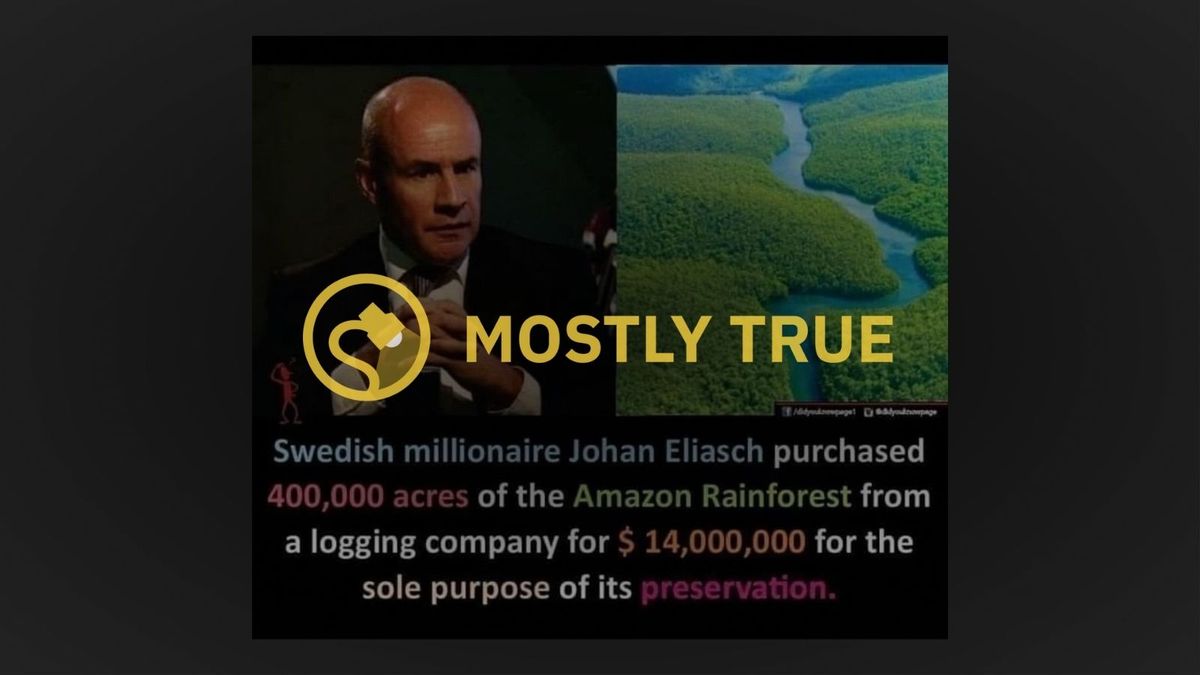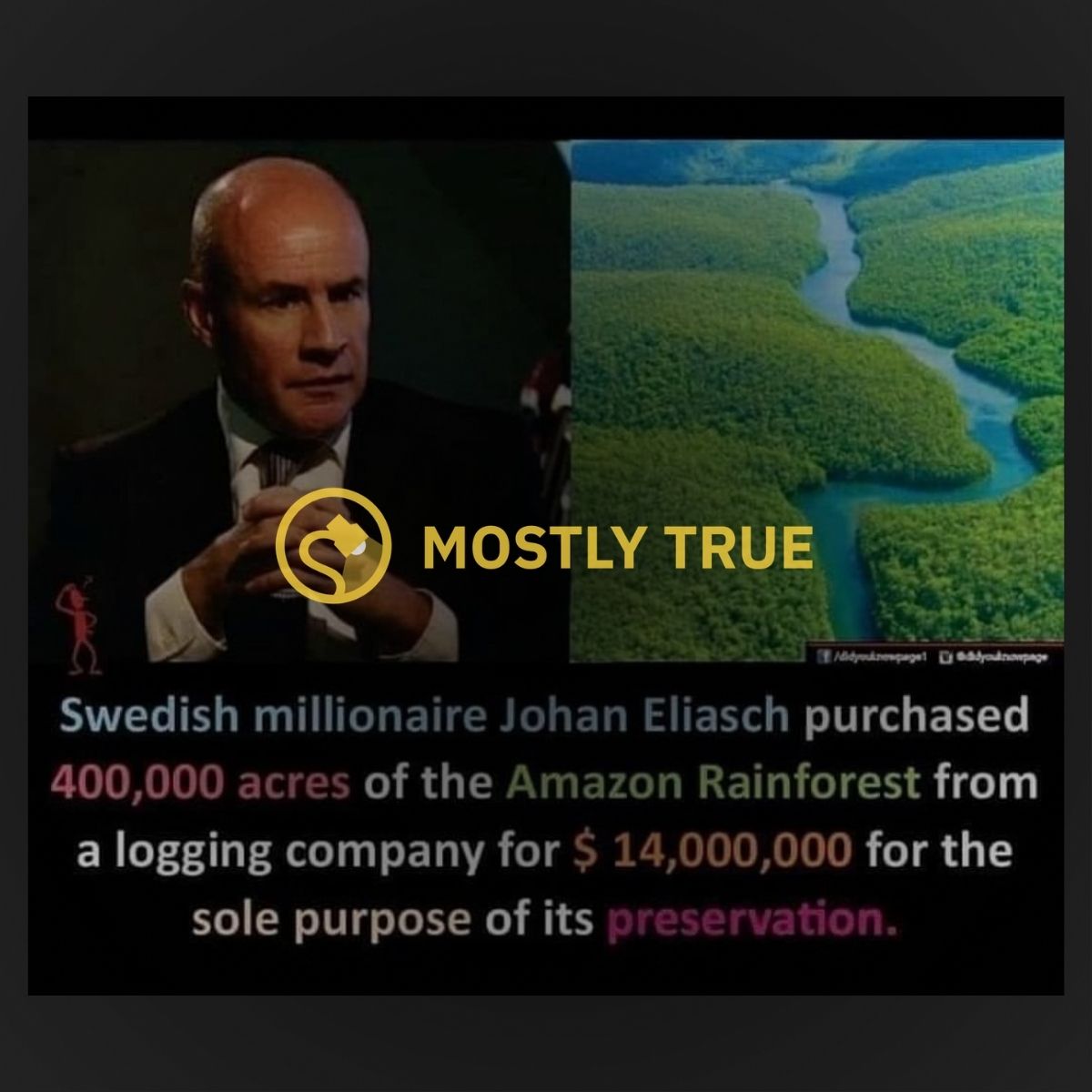In 2005, Johan Eliasch purchased a plant owned by logging company Gethal Amazonas, and acquired titles to Amazon rainforest acreage. He owns a total of 400,000 acres in the Amazon, claiming that his goal is environmental conservation.
When asked, Eliasch did not reveal the price of this purchase.
Rainforest conservation has played a big role in the fight against climate change, and over the last few decades, the ultra-rich have jumped into the fray. As some climate activists jokingly called on Amazon founder Jeff Bezos to buy the Amazon rainforest, a meme popped up reminding us that another rich guy actually went ahead and did it.
This meme claims that Swedish multimillionaire Johan Eliasch bought around 400,000 acres of the Amazon rainforest from a logging company for around $14 million, for the sole purpose of conservation.
According to numerous reports from 2005, Eliasch did indeed buy around 400,000 acres of rainforest land in the Amazon. According to The Wall Street Journal, he bought a plywood plant owned by logging company Gethal Amazonas, and acquired the title to many acres of forested land.
The Guardian reported that the land belonged to the logging company. Eliasch admitted to closing the plant down, and laying off around 1,000 people. He elaborated in an interview with The Guardian:
"I closed the forestry operation down and laid off 1,000 people." All Brazilians? "Yes. To protect the forest." He sees the look on my face. "Now we get to the heart of this problem. It's an interesting dilemma. You have about eight million people in the Amazonas, 7.99 million of whom are poor. They need the jobs. So how do they get employed? Cutting trees." But people still have to eat - if you fire them, surely they will log illegally? "No. I have security people to control things, but in all honesty, you can't do that." Although he is at pains to point out that the layoffs were done properly, in conversation with local authorities and members of the government who are friends of his, it seems that this is just one of the costs of saving the planet.
When asked by The Wall Street Journal in 2007, Eliasch did not reveal the price of the purchase. The Guardian reported that the rumored price was around £8 million which amounts to around $11 million today.
According to a 2008 report by The New York Times, while Eliasch’s intentions were to conserve the forested lands, the Brazilian government and locals were wary of foreign buyers. Drawn by Brazil’s housing and biofuel’s boom, many foreign investors would skip around rules restricting their ownership by buying Brazilian companies and purchasing through them.
In 2008, the Brazilian government announced a fine worth hundreds of millions of dollars, and began investigating the lumber company bought by Eliasch, for alleged illegal logging. Eliasch, however, denied any irregularities. The company argued that the logging activities were in accordance with environmental guidelines and occurred before the change in ownership.
Eliasch estimated that his land purchases preserved around 80 million tons of carbon dioxide, the amount that would be released if those same lands were forested and burned, a relatively high assumption. He also admitted to the Wall Street Journal in 2005 that about a quarter of his land titles were formally registered because there was no dedicated registrar’s office for this purpose.
And former workers at the plant he closed down struggled to find new jobs, though Eliasch said he gave them generous severance packages. Brazilians criticized the sale, with one op-ed written by a number of ministers stating, “The Amazon is not for sale.”
Given that the purchase did take place with Eliasch claiming it was for conservation purposes, but the price he paid is unknown, we rate this claim as “Mostly True.”


